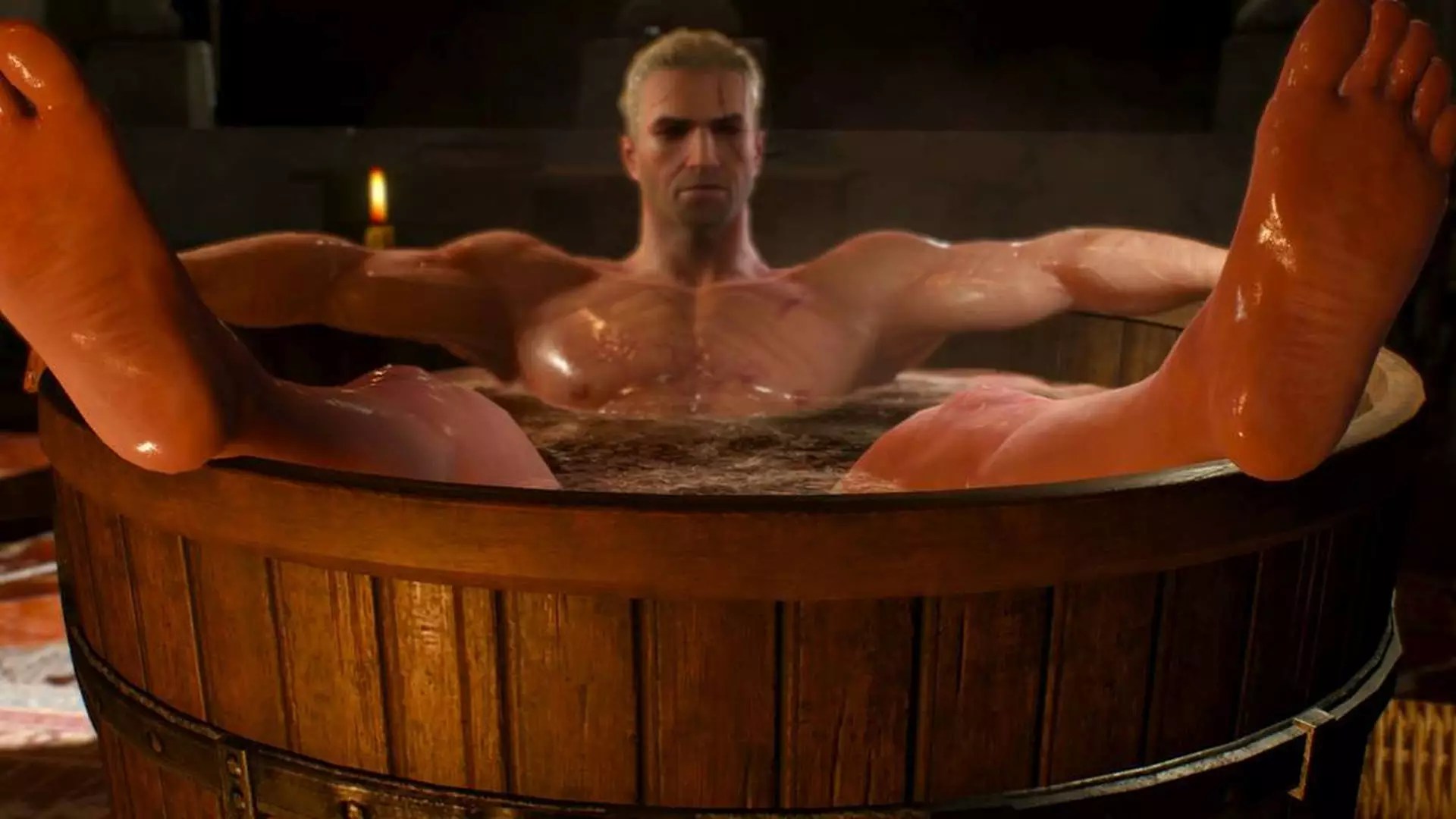In the world of game development, the line between immersion and frustration is often razor-thin. As CD Projekt Red (CDPR) revisits The Witcher 3 on its tenth anniversary, it sheds light on an intriguing idea that never made it into the final product: a mechanic where Geralt of Rivia could drown if he entered the water fully armored. This concept, while ambitious, highlights the challenges of maintaining gameplay balance while striving for a rich narrative experience.
The idea that Geralt would need to strip down and leave his armor behind to swim raises questions about realism in interactive storytelling. On one hand, providing players with an environment where their actions have tangible consequences can heighten the feeling of immersion. On the other, demanding players to engage in tedious actions for the sake of realism can sour the gaming experience. The developers’ decision to abandon this mechanic indicates a deeper understanding of player engagement and enjoyment over strict adherence to realistic scenarios.
The Balance of Realism in Gaming
Traditionally, video games have been built on frameworks that prioritize engagement, fun, and flow. If we were to enforce a mechanic like the one proposed for Geralt, we would likely end up with an experience that feels more like a chore than an adventure. The thought of stripping down to swim might work in short bursts—perhaps when players need to collect an item from shallow waters. However, in deep-sea explorations or lengthy quests, this mechanic could evolve into an exasperating hurdle, detracting from the overall experience.
Realism has its place, certainly, but gaming is inherently a medium built upon escapism. When players step into a game like The Witcher 3, they seek to embrace a world brimming with challenge and allure, not one that turns into a bureaucratic chore governed by petty mechanics. Striking the right balance is essential, and CDPR smartly avoided a mechanic that could have pulled players out of Geralt’s enthralling journeys.
Historical Context and Gameplay Implications
The connection CDPR made to historical events, like that of Holy Roman Emperor Frederick Barbarossa, serves to ground the discussion in real-world scenarios. Legends of armored warriors drowning in water have a historical eerie quality, but it’s a narrative that feels out of place in a fantasy realm where players desire action and adventure, not historical accuracy. Merging history with gameplay can sometimes create fascinating experiences, but it can just as easily lead to problematic mechanics that fail to engage.
For instance, imagine a quest where Geralt is tasked with infiltrating a sunken ship. The idea of having to disarm and undress might ring true to history, but it also bogs down what could be a thrilling scene of underwater exploration. Implementing this mechanic might lead players to think more about inventory management than about the characters and story, something that should be avoided.
Ultimately, the decision to scrap the drowning mechanic demonstrates CDPR’s commitment to player experience. In an industry often rife with excessive realism that detracts from the fun, it’s refreshing to see developers prioritize engagement over authenticity. As players, our time in these fantasy worlds should be one of excitement, not administrative work to account for pointless realism. As we anticipate future iterations like The Witcher 4, letting go of burdensome mechanics that detract from enjoyment may lead to even more immersive experiences.


Leave a Reply